Most drivers should budget between $1,200 and $1,800 per year for regular car maintenance. This includes oil changes, tire rotations, brake pad replacements, and unexpected issues. The exact number depends on your car’s age, mileage, and how often you drive.
Car ownership comes with a sense of freedom—but also financial responsibility. Whether you're cruising in a brand-new SUV or holding onto a reliable older sedan, the cost of owning a car goes far beyond the price tag. One of the smartest financial moves you can make as a vehicle owner? Creating a car maintenance budget.
In this comprehensive guide, we’ll break down how to drive smart and save smarter, with practical strategies for planning your vehicle maintenance, managing car repair costs, and protecting your wallet from surprises. If you're looking for actionable tips for saving money on car repairs and want to learn how a vehicle service contract can offer long-term savings and peace of mind, you're in the right place.
Why You Need a Car Maintenance Budget
Creating a car maintenance budget isn’t just a good idea—it’s essential. According to AAA, the average annual cost of owning a car is over $12,000 when you factor in maintenance, fuel, insurance, and depreciation.
Here are just a few reasons why budgeting is critical:
- Preventative maintenance saves money in the long run.
- You avoid dipping into emergency savings for surprise repairs.
- You can compare the cost of DIY car maintenance vs professional services to make smarter decisions.
- You’re less likely to take on high-interest debt to cover repair costs.
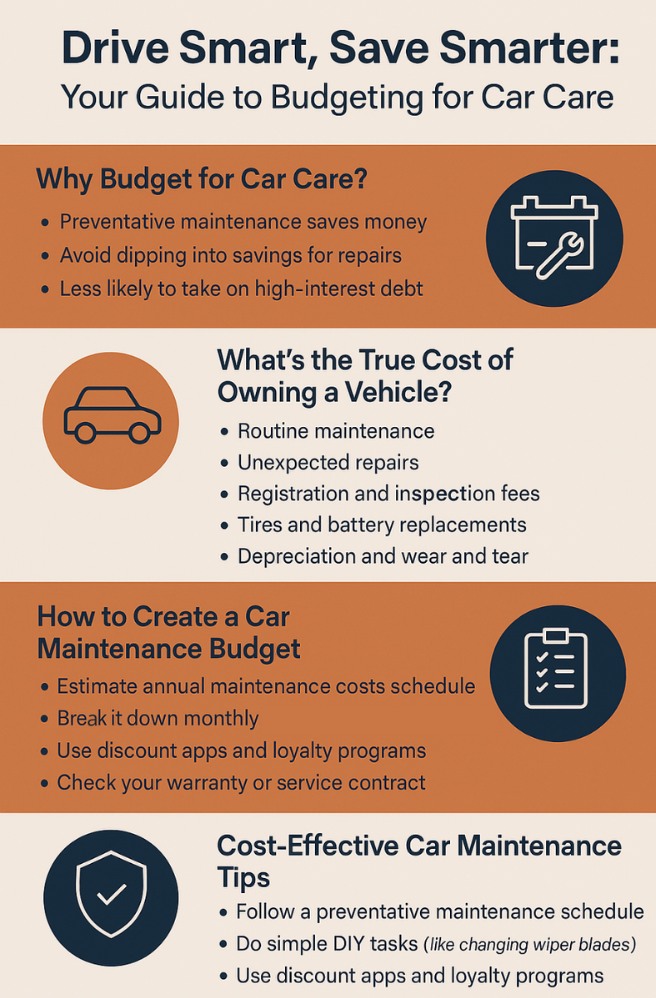
What’s the True Cost of Owning a Vehicle?
Owning a car comes with hidden costs beyond monthly payments and insurance. These include:
- Routine maintenance (oil changes, tire rotations, brake pads)
- Unexpected repairs (transmission failure, alternator replacement)
- Registration and inspection fees
- Tires and battery replacements
- Depreciation and wear and tear
Let’s break down the average monthly cost of car maintenance for various types of vehicles:
| Vehicle Type | Average Monthly Maintenance Cost |
|---|---|
| Compact Car | $100–$120 |
| Midsize Sedan | $120–$140 |
| SUV | $150–$180 |
| Truck/4x4 | $180–$220 |
| Luxury Vehicle | $200+ |
Tip: Don’t forget to budget for seasonal maintenance and mileage milestones (like 30K, 60K, and 100K service).
How to Create a Car Maintenance Budget (That Actually Works)
Here’s a step-by-step guide to creating a realistic car maintenance budget for 2025 or any year:
Step 1: Know Your Vehicle’s History and Age
Older vehicles usually require more frequent repairs. Use past maintenance records and your owner’s manual to predict future needs.
Step 2: Estimate Annual Maintenance Costs
Use this simple formula:
Estimated annual maintenance = (Total cost of services over past 12 months) ÷ (Age of vehicle in years)
Or use industry averages: $1,200–$1,800/year for most drivers.
Step 3: Break It Down Monthly
Divide your annual estimate by 12 to set aside money each month.
Example: If you expect $1,500 in annual repairs, budget $125/month.
Step 4: Create an Emergency Car Fund
Set aside an additional $500–$1,000/year for budgeting for unexpected car repairs.
Step 5: Track Spending Over Time
Use budgeting tools like Mint, YNAB, or a basic spreadsheet to stay on track.
Cost-Effective Car Maintenance Strategies
Maintaining your car doesn’t have to be expensive. Here are cost-effective car maintenance strategies that help you drive longer and spend less.
✅ Follow a Preventative Maintenance Schedule
Stick to your manufacturer’s guidelines to avoid costly damage.
✅ DIY When It Makes Sense
Changing air filters or wiper blades can save you money—just avoid repairs that involve safety-critical systems.
Beware the financial risks of DIY car repair mistakes. A bad brake job or incorrect timing belt install can cost thousands to undo.
✅ Use Discount Apps and Loyalty Programs
Apps like RepairPal, Openbay, and YourMechanic help you compare shop prices. Many dealers offer loyalty discounts or prepaid maintenance plans.
✅ Check Your Warranty or Vehicle Service Contract
Before you pay out-of-pocket, check to see what’s already covered.

Budgeting for Car Repairs vs Service Contract: What’s Smarter?
Here’s where financial strategy meets peace of mind.
Without coverage, you’re solely responsible for repairs like:
- Transmission replacement: $3,000–$5,000
- Engine repair: $4,000–$7,000
- A/C system failure: $1,200–$2,500
- Suspension repairs: $1,000+
With a vehicle service contract, you can:
- Protect savings from car repairs
- Avoid unexpected car repair bills
- Gain financial security for vehicle owners
- Lock in coverage now and avoid inflated future costs
So, is a vehicle service contract worth it financially?
If a $3,000 repair would wreck your budget, the answer is likely yes.
📍 Learn more about how Noble Quote offers flexible plans to match your budget and protect your car. Our customers enjoy:
- 24/7 roadside assistance
- Rental car reimbursement
- Towing coverage
- Total peace of mind
Common Car Repairs to Budget For
Here’s a snapshot of the most common repairs and their average costs:
| Repair Type | Average Cost (Parts & Labor) |
|---|---|
| Brake Pad Replacement | $300–$500 |
| Alternator Replacement | $500–$900 |
| Starter Motor Replacement | $400–$600 |
| Water Pump Replacement | $500–$1,000 |
| Timing Belt Replacement | $750–$1,200 |
These costs add up quickly—budgeting for car repairs vs service contract becomes a question of predictability vs risk.
Long-Term Car Maintenance Savings Tips
Use these strategies to save money on car repairs and build long-term security:
- Keep tires properly inflated to prevent wear and improve fuel economy
- Get regular oil changes using the right oil grade
- Wash and wax your car to prevent corrosion
- Use high-quality fluids and filters
- Don’t ignore small issues—they often grow more expensive over time
The Financial Risks of Not Having a Car Warranty
Choosing not to invest in a service contract or extended warranty means:
- Paying full price for repairs
- Risking major out-of-pocket expenses
- Financial instability in emergencies
- Potential for debt or credit card use to cover repairs
Vehicle protection plans cost far less than most emergency repairs—and can be financed over time.
When Does a Vehicle Service Contract Make Sense?
You should consider one if:
- Your factory warranty is about to expire
- You drive a high-mileage vehicle
- You want to avoid unexpected car repair bills
- You prefer predictable monthly expenses
- You’d rather pay $100/month than a $5,000 surprise
Drive Smart, Save Smarter with Noble Quote
At Noble Quote, we help everyday drivers take control of their car costs. We believe in smart driving, smarter saving, and protecting what matters most—your peace of mind.
With our customizable vehicle protection plans, you can choose the coverage level that fits your budget while gaining access to:
- 24/7 roadside assistance
- Trip interruption benefits
- Routine maintenance reimbursements
- Easy claims and customer-first support
Explore our Learning Center for helpful tools, vehicle maintenance guides, and more: Visit the Noble Quote Learning Center
Final Thought:
Car ownership isn’t just about the freedom to drive—it’s about the responsibility to plan. When you budget for car maintenance and consider vehicle protection options like those from Noble Quote, you're not just saving money—you're setting yourself up for long-term financial security.
Ready to drive smarter and save smarter? Get your free coverage quote from Noble Quote today.
Smart Car Care FAQ: Real Answers to Help You Budget, Save, and Avoid Surprise Repairs
How much should I budget for car maintenance each year?
What are the hidden costs of car ownership I should plan for?
Beyond monthly payments, car owners should plan for:
- Repairs and part replacements (battery, alternator, etc.)
- Routine maintenance (oil, filters, wipers)
- Tires and alignment
- Registration and inspections
- Insurance deductibles
These hidden costs can add up to thousands annually if unplanned.
What’s a realistic car maintenance budget for a used car in 2025?
For a used car in 2025, a realistic maintenance budget is $100–$150 per month, or $1,200–$1,800 per year. Higher mileage vehicles often require more repairs, so build in a buffer for unplanned expenses.
What’s the average monthly cost of car maintenance?
The average driver pays $100 to $200 per month on maintenance, depending on vehicle type and age. Trucks, SUVs, and luxury cars typically cost more than compact or midsize sedans.
How can I save money on car repairs without cutting corners?
To save money without compromising quality:
- Follow the manufacturer’s maintenance schedule
- Learn simple DIY maintenance (air filters, windshield wipers)
- Compare local shop rates online
- Use a vehicle service contract to cover expensive repairs
What’s the difference between budgeting for car repairs and getting a service contract?
Budgeting means setting aside cash monthly for repairs. A vehicle service contract shifts that burden to a protection provider—you pay a predictable fee and avoid unexpected out-of-pocket bills. It’s often smarter for long-term financial stability.
Are vehicle service contracts worth the cost?
Yes, especially for cars outside their factory warranty. A good service contract can:
- Prevent surprise repair bills
- Protect your savings
- Improve resale value
- Provide peace of mind with covered repairs and added benefits like towing and rental car reimbursement.
Can DIY car maintenance really save me money?
Yes—but only if done correctly. DIY tasks like oil changes or air filter replacements can save $50–$100 each time. But mistakes (like improper brake installation) can lead to thousands in repair costs. Always weigh risk vs reward.
What are the most expensive car repairs to budget for?
Some of the costliest car repairs include:
- Transmission replacement: $3,000–$5,000
- Engine overhaul: $4,000–$7,000
- Suspension or A/C failure: $1,000+ A vehicle service contract can significantly reduce or eliminate these costs.
How can I avoid surprise car repair bills altogether?
You can avoid surprise bills by:
- Keeping up with preventative maintenance
- Tracking your car’s mileage-based service needs
- Signing up for a vehicle service contract
- Setting aside emergency car repair funds in advance
Suggestions for you
Read MoreLet’s work together
Every week we showcase three charitable organizations that our donations are sent to. Our clients are able to choose which of these three will receive their gift when they add coverage to their vehicle...


 Don’t Let Tariffs Hike Your Bills: The Smart Way an Extended Warranty Saves You on Car Repairs
Don’t Let Tariffs Hike Your Bills: The Smart Way an Extended Warranty Saves You on Car Repairs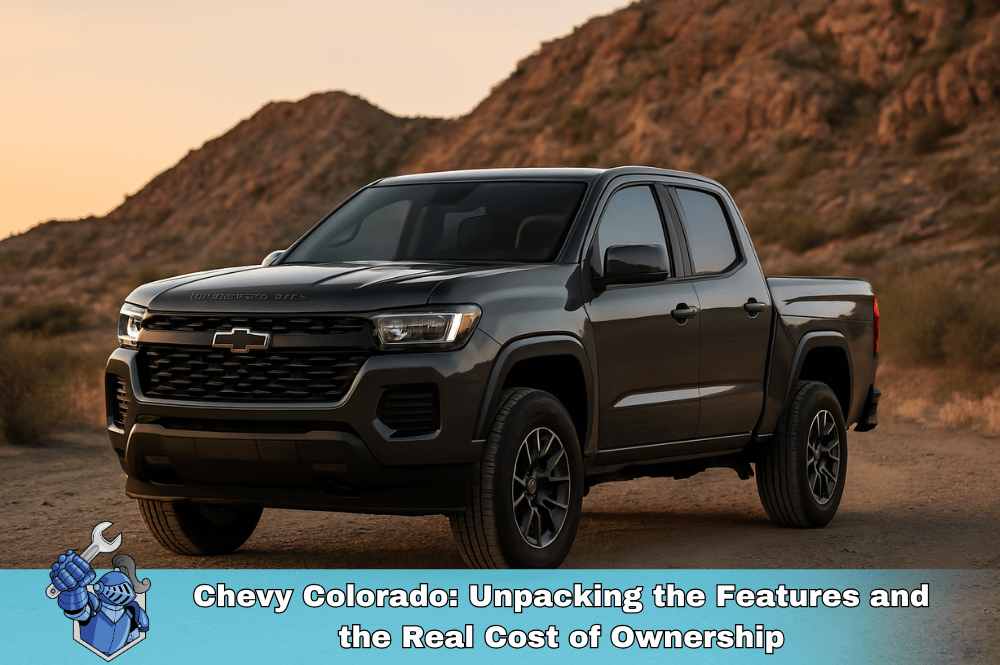 Chevy Colorado: Unpacking the Features and the Real Cost of Ownership
Chevy Colorado: Unpacking the Features and the Real Cost of Ownership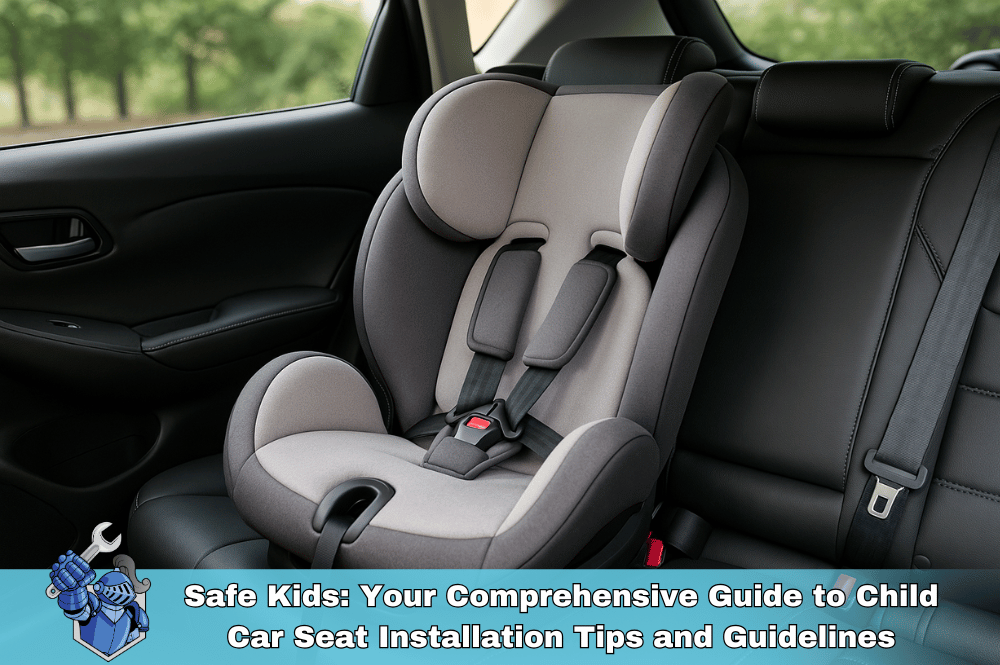 Safe Kids: Your Comprehensive Guide to Child Car Seat Installation Tips and Guidelines
Safe Kids: Your Comprehensive Guide to Child Car Seat Installation Tips and Guidelines Unlock Better Opportunities: Your Guide to Understanding and Improving Your Credit Score
Unlock Better Opportunities: Your Guide to Understanding and Improving Your Credit Score Beyond the Hype: A Realistic Look at Hyundai Ioniq 5 Ownership Costs and Performance
Beyond the Hype: A Realistic Look at Hyundai Ioniq 5 Ownership Costs and Performance Bitcoin vs. Cash: A Head-to-Head Comparison of Features
Bitcoin vs. Cash: A Head-to-Head Comparison of Features Decoding Your Wallet: The Benefits of Using Cash and Credit Wisely
Decoding Your Wallet: The Benefits of Using Cash and Credit Wisely Kia Telluride Review: Unpacking the Features and the Real Cost to Own
Kia Telluride Review: Unpacking the Features and the Real Cost to Own NobleQuote: Best Auto Protection, Not Just the Oldest
NobleQuote: Best Auto Protection, Not Just the Oldest What is a Home Warranty and Do You Need One?
What is a Home Warranty and Do You Need One?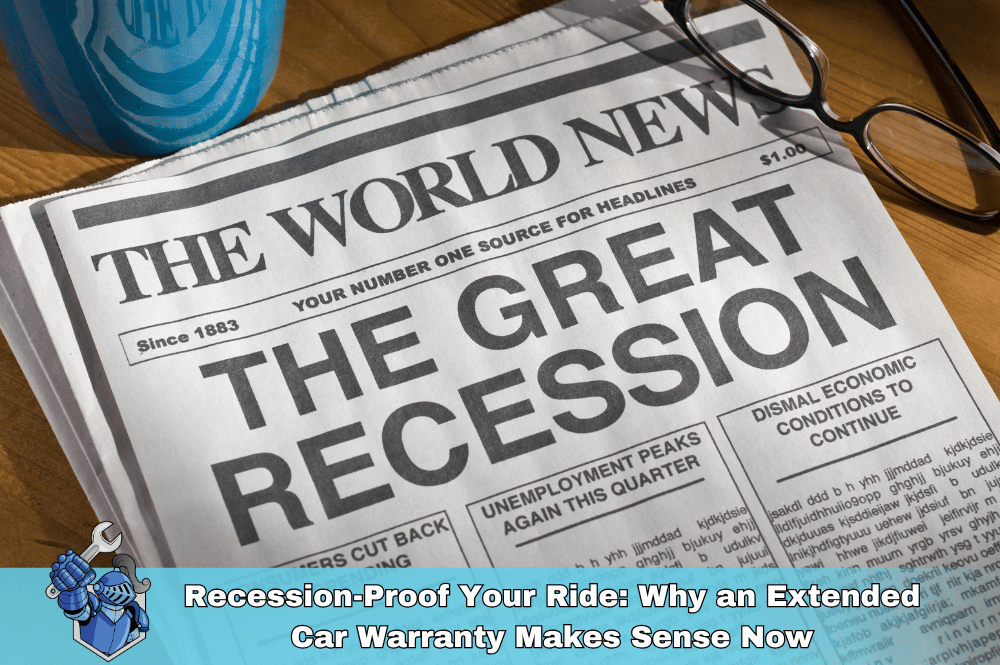 Recession-Proof Your Ride: Why an Extended Car Warranty Makes Sense Now
Recession-Proof Your Ride: Why an Extended Car Warranty Makes Sense Now RV Road Trip Ready: Secure Your Adventures with Extended Warranty Coverage
RV Road Trip Ready: Secure Your Adventures with Extended Warranty Coverage Stop Paying for Potholes: The Smart Way to Protect Your Wheels and Tires
Stop Paying for Potholes: The Smart Way to Protect Your Wheels and Tires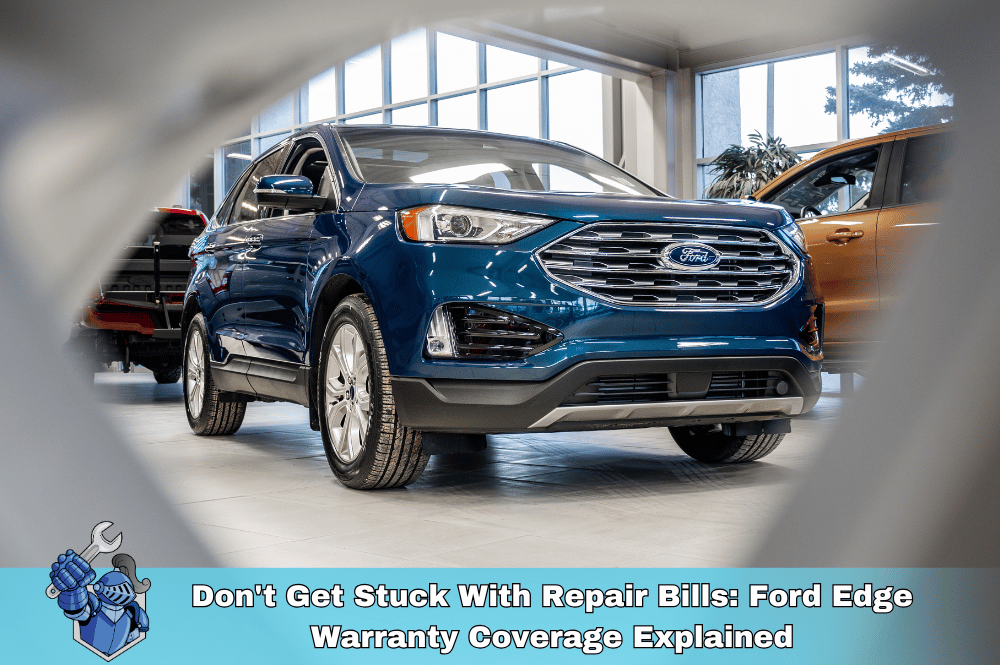 Don’t Get Stuck With Repair Bills: Ford Edge Warranty Coverage Explained
Don’t Get Stuck With Repair Bills: Ford Edge Warranty Coverage Explained Navigating the Online Vehicle Marketplace: Your Comprehensive Guide to Finding the Perfect Car or Truck
Navigating the Online Vehicle Marketplace: Your Comprehensive Guide to Finding the Perfect Car or Truck Maximize Your Savings: Understanding Your Vehicle Service Contract Deductible Options
Maximize Your Savings: Understanding Your Vehicle Service Contract Deductible Options Vehicle Service Contracts for SUVs and Trucks: Protecting Your Investment
Vehicle Service Contracts for SUVs and Trucks: Protecting Your Investment What to Do If Your Vehicle Service Contract Claim Is Denied
What to Do If Your Vehicle Service Contract Claim Is Denied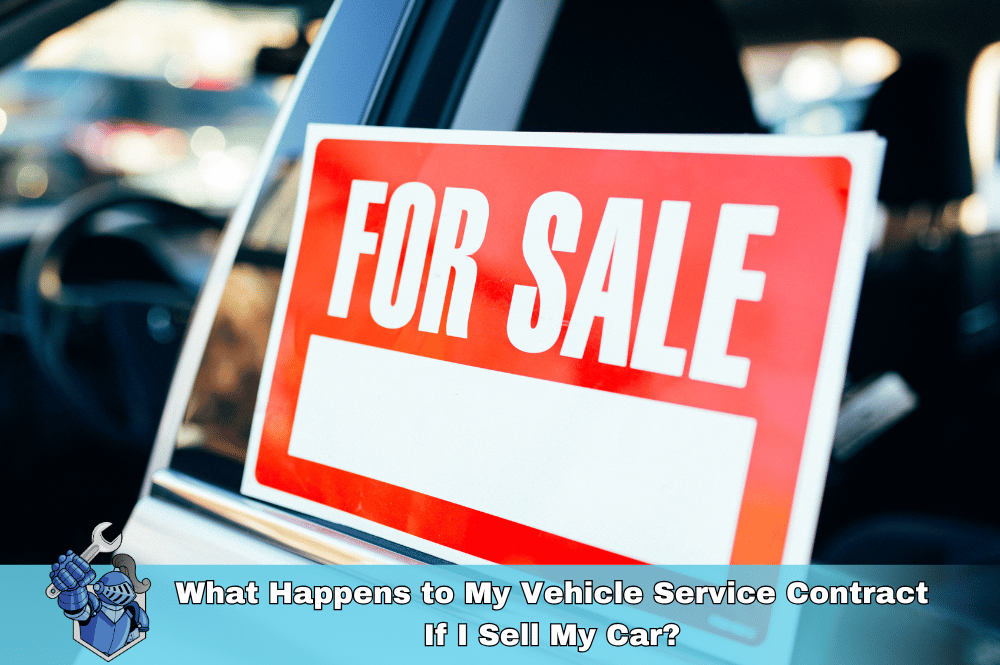 What Happens to My Vehicle Service Contract If I Sell My Car?
What Happens to My Vehicle Service Contract If I Sell My Car? Extended Car Warranty with Active Factory Coverage: Smart Move or Waste of Money?
Extended Car Warranty with Active Factory Coverage: Smart Move or Waste of Money?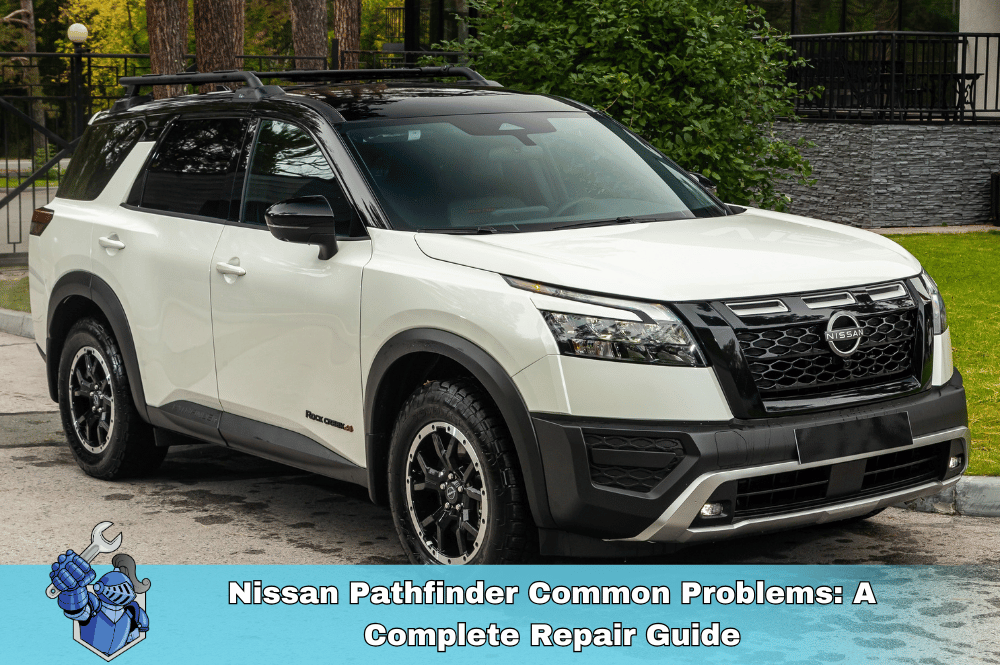 Nissan Pathfinder Common Problems: A Complete Repair Guide
Nissan Pathfinder Common Problems: A Complete Repair Guide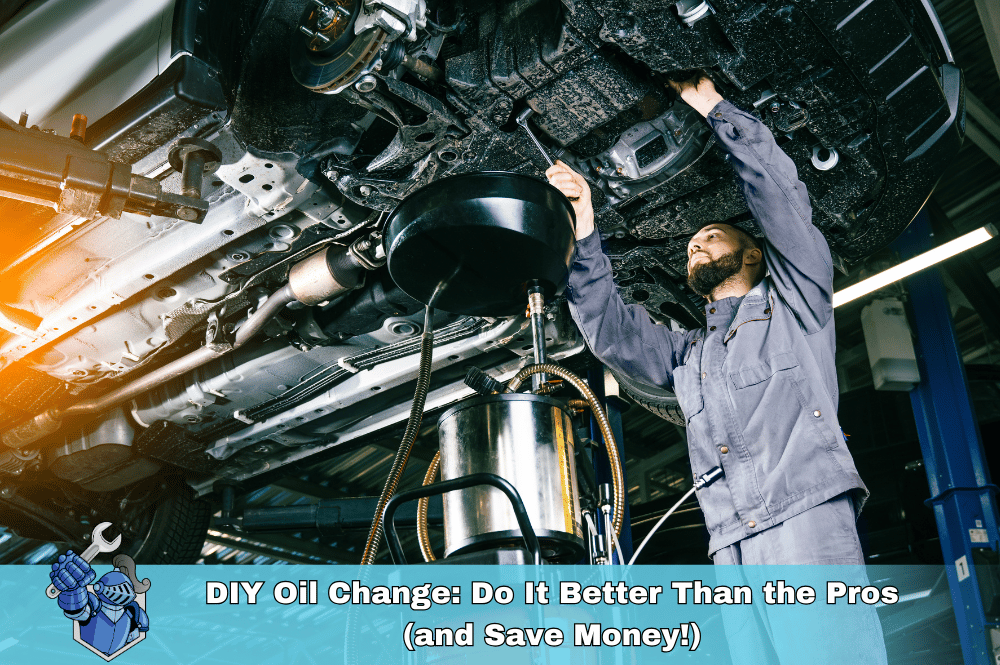 DIY Oil Change: Do It Better Than the Pros (and Save Money!)
DIY Oil Change: Do It Better Than the Pros (and Save Money!) Keeping vs. Selling: Weighing Your Car Options & the Value of an Extended Car Warranty
Keeping vs. Selling: Weighing Your Car Options & the Value of an Extended Car Warranty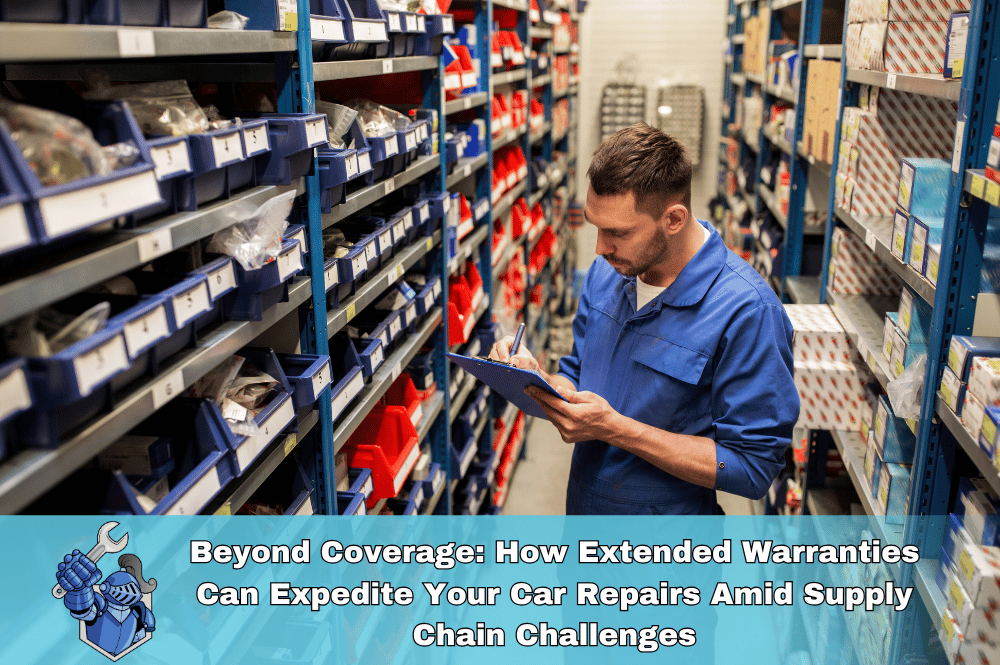 Beyond Coverage: How Extended Warranties Can Expedite Your Car Repairs Amid Supply Chain Challenges
Beyond Coverage: How Extended Warranties Can Expedite Your Car Repairs Amid Supply Chain Challenges Protecting Your Ride Like Jalen Protects the Pocket: Cars, Eagles, and Smart Investments
Protecting Your Ride Like Jalen Protects the Pocket: Cars, Eagles, and Smart Investments Rivian R1S Review: Is This the Ultimate Electric Adventure SUV? (2025)
Rivian R1S Review: Is This the Ultimate Electric Adventure SUV? (2025) The Truck Owner’s Peace of Mind: Why Noble Quote Leads the Pack in Truck Repair Protection
The Truck Owner’s Peace of Mind: Why Noble Quote Leads the Pack in Truck Repair Protection Noble Quote: Driving with Confidence, Protected from Unexpected Repairs
Noble Quote: Driving with Confidence, Protected from Unexpected Repairs Ferrari vs. Lamborghini: A History of Innovation and Rivalry
Ferrari vs. Lamborghini: A History of Innovation and Rivalry Porsche GT3: Beyond the Numbers – The Soul-Stirring GT3 Experience
Porsche GT3: Beyond the Numbers – The Soul-Stirring GT3 Experience Kansas City Chiefs Players: You Won’t Believe What They’re Driving!
Kansas City Chiefs Players: You Won’t Believe What They’re Driving! Dodge TRX: King of the Off-Road
Dodge TRX: King of the Off-Road Ford Raptor Extended Warranty Guide: Conquer the Road with Confidence
Ford Raptor Extended Warranty Guide: Conquer the Road with Confidence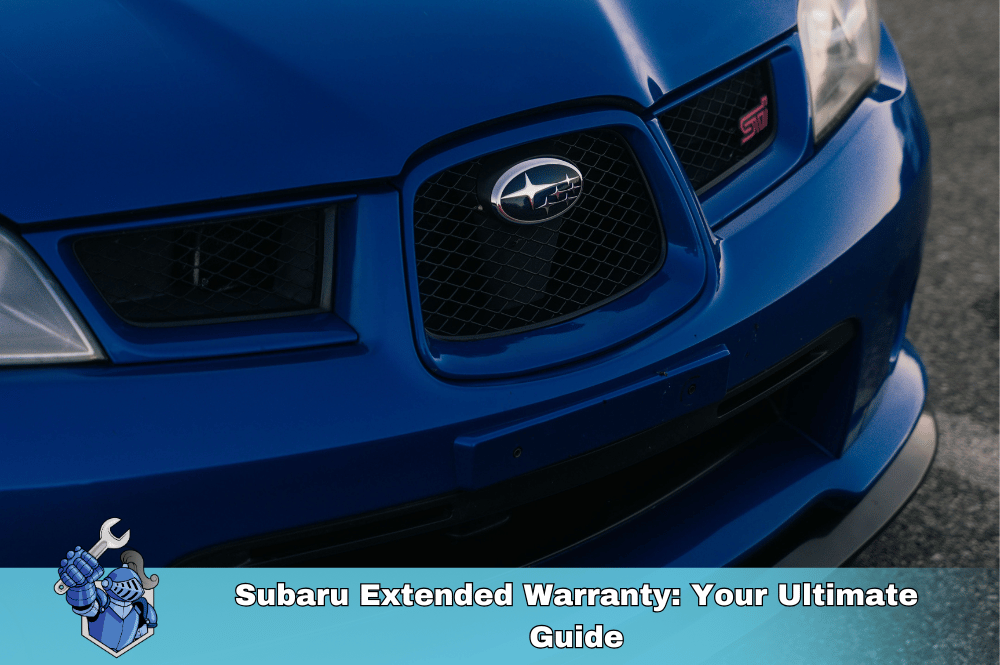 Subaru Extended Warranty: Your Ultimate Guide
Subaru Extended Warranty: Your Ultimate Guide Protect Your Car & the Planet: Introducing NobleQuote's Green Choice Program
Protect Your Car & the Planet: Introducing NobleQuote's Green Choice Program Mazda Extended Warranty: Your Comprehensive Guide
Mazda Extended Warranty: Your Comprehensive Guide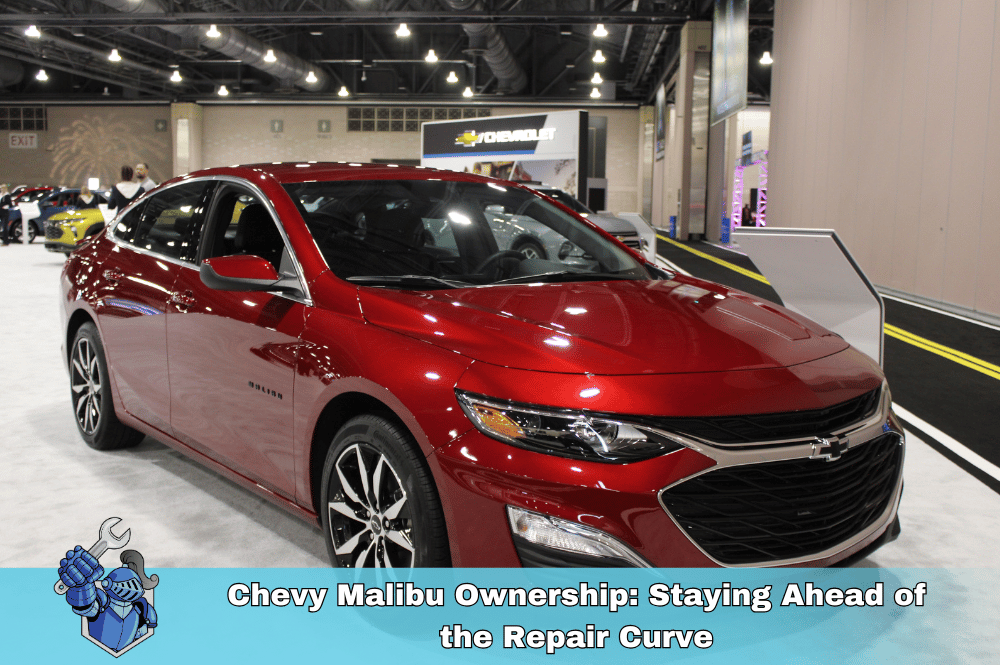 Chevy Malibu Ownership: Staying Ahead of the Repair Curve
Chevy Malibu Ownership: Staying Ahead of the Repair Curve The Most Common Car Breakdowns of 2025 (And How to Avoid Them)
The Most Common Car Breakdowns of 2025 (And How to Avoid Them) Supercar Dreams on a Budget: The Most Affordable Exotics for First-Time Buyers
Supercar Dreams on a Budget: The Most Affordable Exotics for First-Time Buyers Porsche Cayenne Engine Problems: What to Watch For
Porsche Cayenne Engine Problems: What to Watch For The Future of Racing: Electric Cars, Autonomous Vehicles, and Beyond
The Future of Racing: Electric Cars, Autonomous Vehicles, and Beyond We've Moved! Noble Quote's New Home at the Lake of the Ozarks
We've Moved! Noble Quote's New Home at the Lake of the Ozarks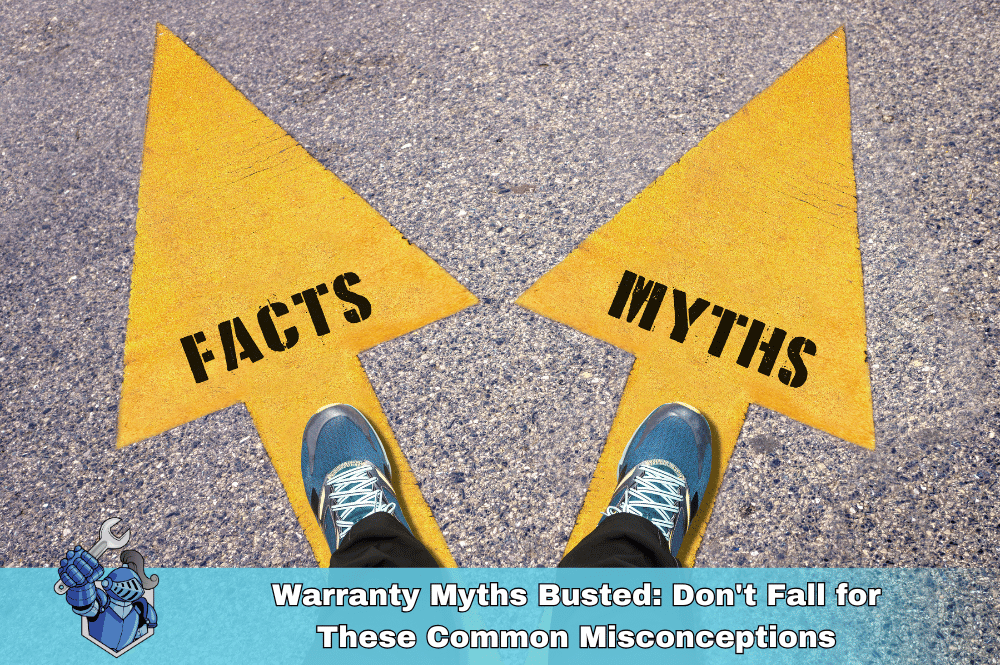 Warranty Myths Busted: Don't Fall for These Common Misconceptions
Warranty Myths Busted: Don't Fall for These Common Misconceptions Forza: The Perfect Blend of Simulation and Arcade Fun
Forza: The Perfect Blend of Simulation and Arcade Fun If NASCAR Had Car Warranties: The Pit Stop Chaos You’d See
If NASCAR Had Car Warranties: The Pit Stop Chaos You’d See The "New Car Smell" Doesn't Last Forever: Protecting Your Investment Long-Term
The "New Car Smell" Doesn't Last Forever: Protecting Your Investment Long-Term Beyond F1: Exploring the World's Most Extreme Racing Series
Beyond F1: Exploring the World's Most Extreme Racing Series 5 Car Problems That’ll Make You Wish You Had an Extended Warranty
5 Car Problems That’ll Make You Wish You Had an Extended Warranty The Greatest NASCAR Rivalries of All Time: On-Track Battles and Off-Track Drama
The Greatest NASCAR Rivalries of All Time: On-Track Battles and Off-Track Drama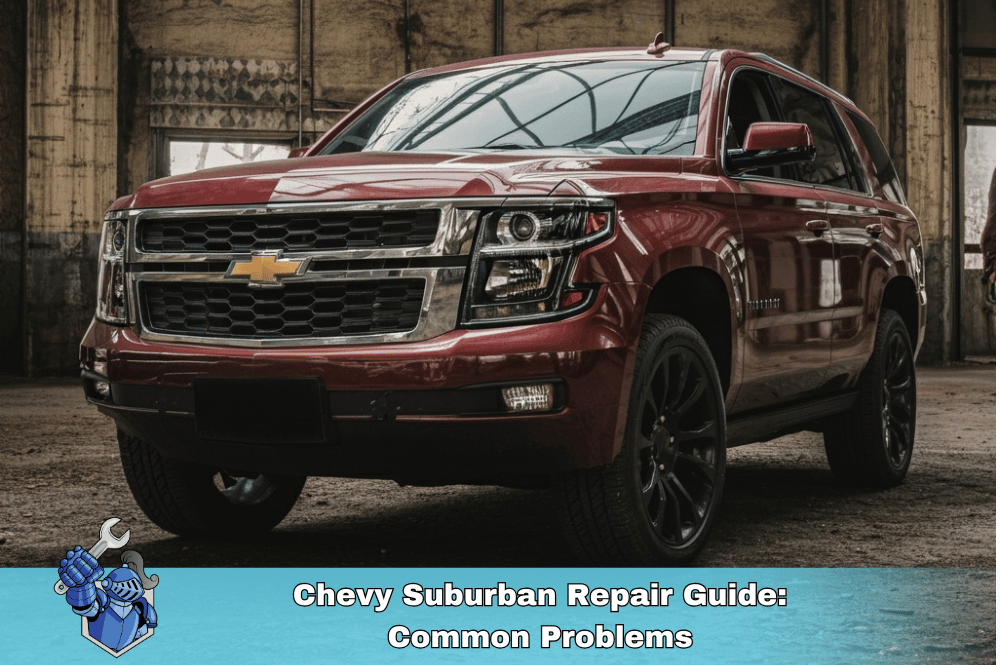 Chevy Suburban Repair Guide: Common Problems
Chevy Suburban Repair Guide: Common Problems Cupid's Got Horsepower: Rev Up Your Valentine's Day!
Cupid's Got Horsepower: Rev Up Your Valentine's Day! Knight Rider vs. Back to the Future: A Battle of the 80s Icons
Knight Rider vs. Back to the Future: A Battle of the 80s Icons Cadillac Escalade: Mastering the Maintenance
Cadillac Escalade: Mastering the Maintenance Noble Quote vs. Omega Auto Care: Which Auto Warranty Is Right for You?
Noble Quote vs. Omega Auto Care: Which Auto Warranty Is Right for You? Best Extended Warranty for Your Ford: Noble Quote or Ford Protect?
Best Extended Warranty for Your Ford: Noble Quote or Ford Protect? Charging Your Peace of Mind: Using a Credit Card to Buy a Car Warranty
Charging Your Peace of Mind: Using a Credit Card to Buy a Car Warranty Extended Warranty vs. Self-Insuring: Which Is Right for You?
Extended Warranty vs. Self-Insuring: Which Is Right for You? 10 Things You Didn't Know About James Bond’s Aston Martin DB5
10 Things You Didn't Know About James Bond’s Aston Martin DB5 Don’t Buy a Honda Warranty Before Reading This! Noble Quote vs. HondaCare
Don’t Buy a Honda Warranty Before Reading This! Noble Quote vs. HondaCare Mercedes-Benz G-Class Review: On and Off-Road Performance, Features, and Price
Mercedes-Benz G-Class Review: On and Off-Road Performance, Features, and Price Avoid Costly Repairs: Noble Quote vs. Ox Car Care Warranties
Avoid Costly Repairs: Noble Quote vs. Ox Car Care Warranties CarMax MaxCare vs. Noble Quote: Extended Warranty Showdown
CarMax MaxCare vs. Noble Quote: Extended Warranty Showdown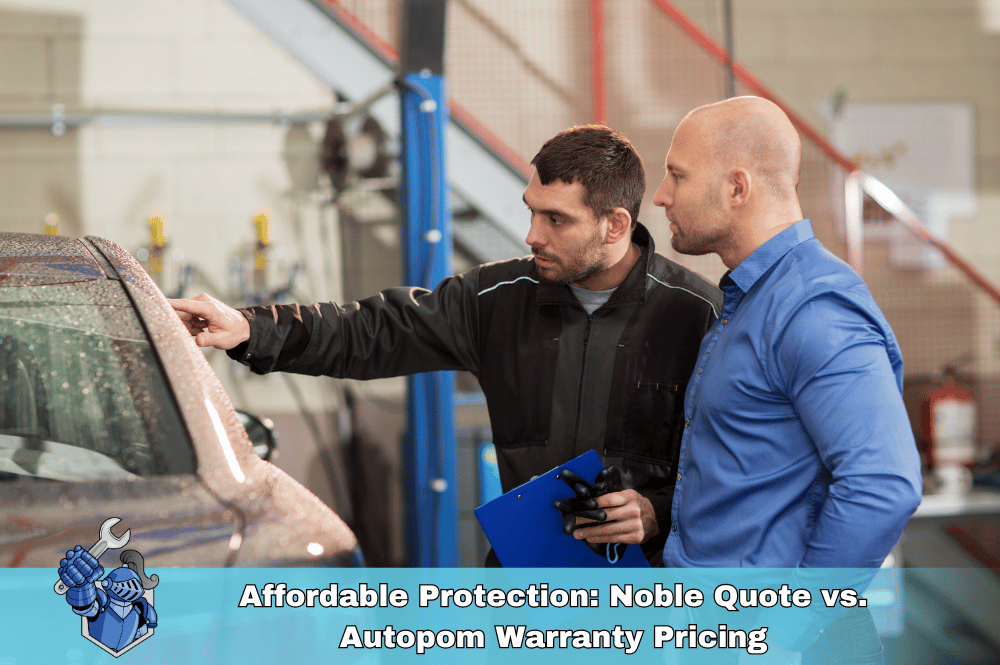 Affordable Protection: Noble Quote vs. Autopom Warranty Pricing
Affordable Protection: Noble Quote vs. Autopom Warranty Pricing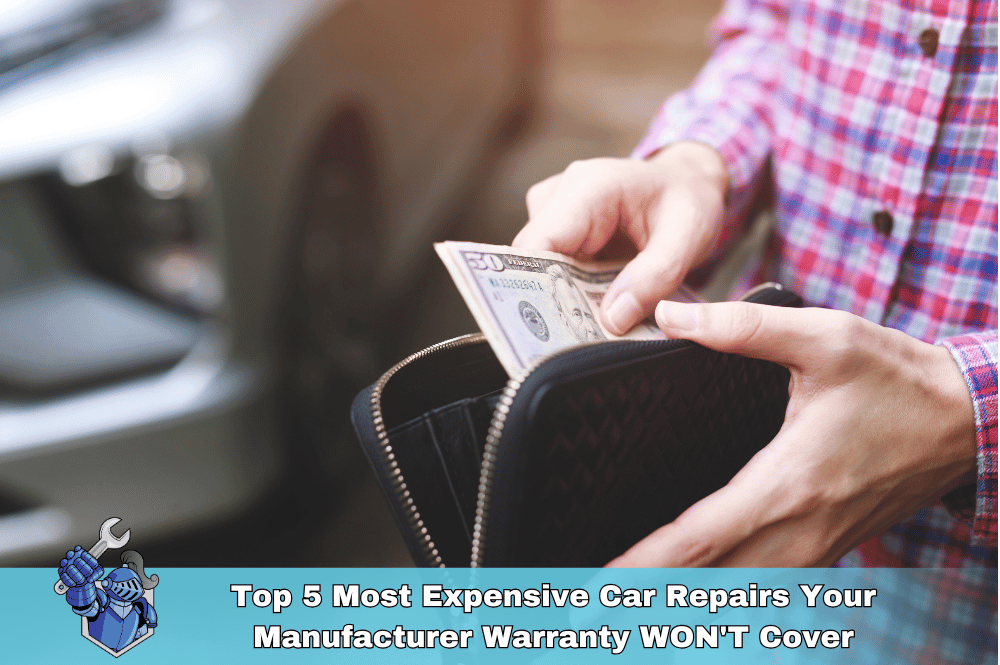 Top 5 Most Expensive Car Repairs Your Manufacturer Warranty WON'T Cover
Top 5 Most Expensive Car Repairs Your Manufacturer Warranty WON'T Cover From Referrals to Reviews: Finding the Perfect Repair Shop for You
From Referrals to Reviews: Finding the Perfect Repair Shop for You Speaking Car: How to Clearly Communicate with Your Mechanic
Speaking Car: How to Clearly Communicate with Your Mechanic Selling Your Soul for an Extended Car Warranty (And Why They Keep Calling)
Selling Your Soul for an Extended Car Warranty (And Why They Keep Calling)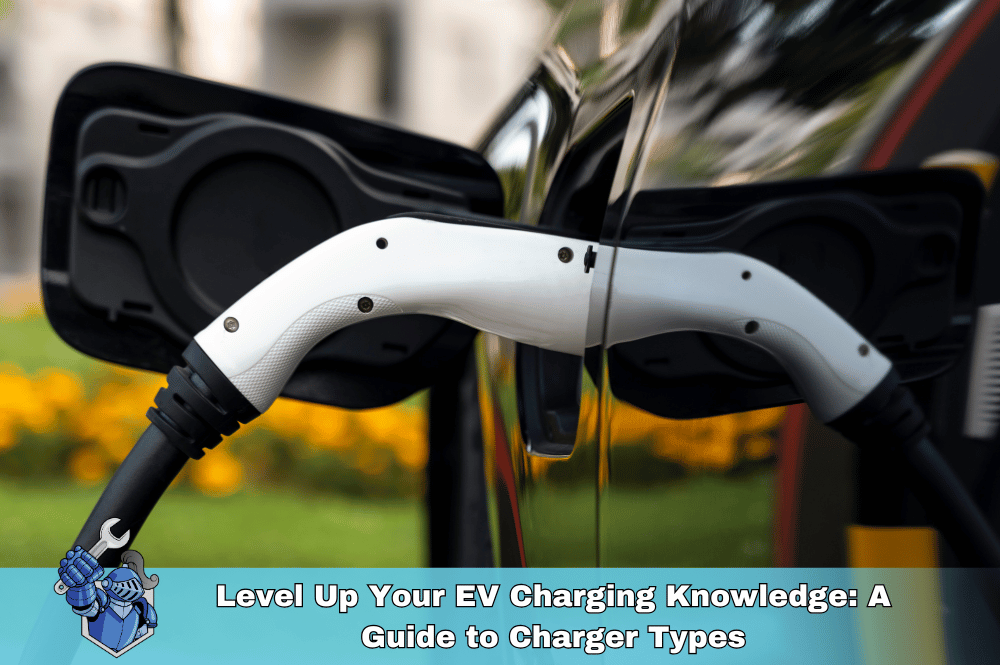 Level Up Your EV Charging Knowledge: A Guide to Charger Types
Level Up Your EV Charging Knowledge: A Guide to Charger Types Why Is My Car Heater Blowing Cold Air?
Why Is My Car Heater Blowing Cold Air? Bumper to Bumper Extended Warranty: What Does it Really Mean?
Bumper to Bumper Extended Warranty: What Does it Really Mean?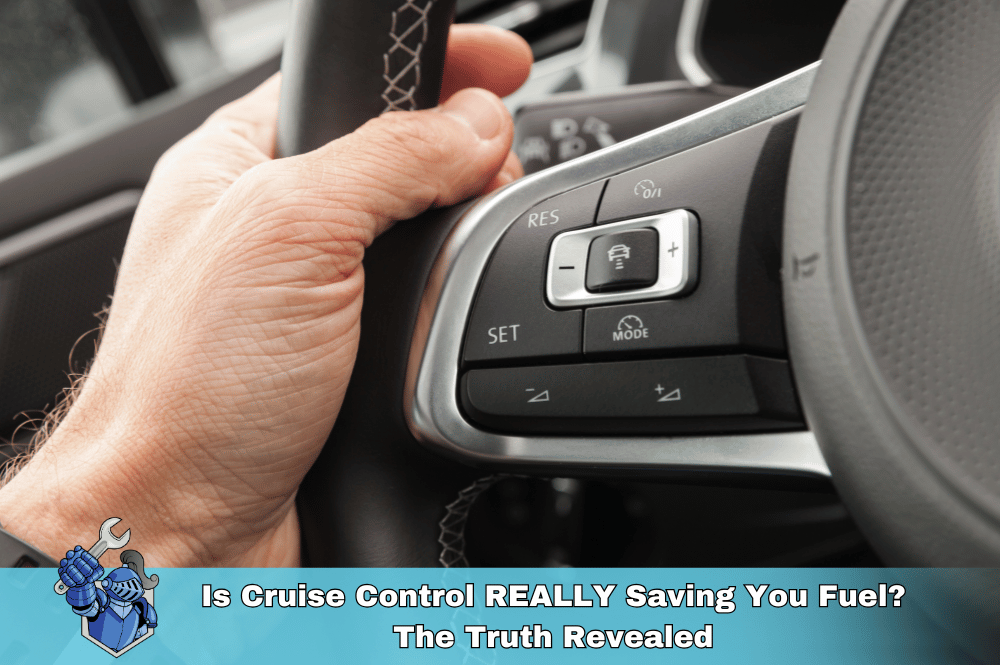 Is Cruise Control REALLY Saving You Fuel? The Truth Revealed
Is Cruise Control REALLY Saving You Fuel? The Truth Revealed Boost Your EV's Range: Tips and Tricks for Maximum Mileage
Boost Your EV's Range: Tips and Tricks for Maximum Mileage What to Do When the Dealership Makes Warranty Cancellation a Hassle
What to Do When the Dealership Makes Warranty Cancellation a Hassle Why Can’t I Include My Warranty in My Car Financing? Answers to Your Top Questions
Why Can’t I Include My Warranty in My Car Financing? Answers to Your Top Questions Car Safety Technology: How Advanced Driver-Assistance Systems (ADAS) Are Changing the Game (and Your Insurance Rates)
Car Safety Technology: How Advanced Driver-Assistance Systems (ADAS) Are Changing the Game (and Your Insurance Rates)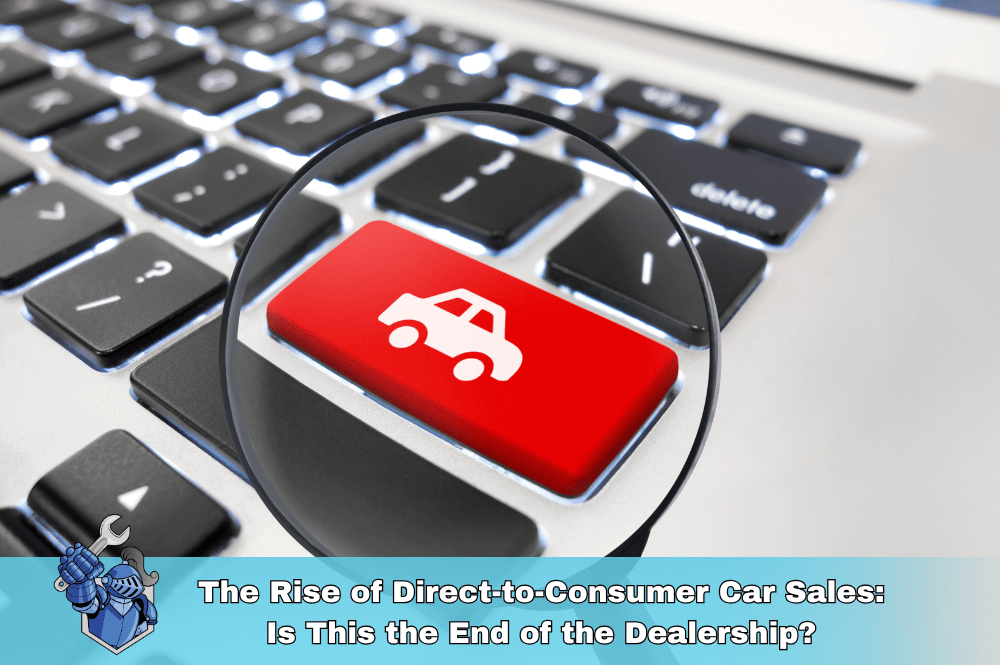 Skip the Dealership: The Rise of Online Car Buying
Skip the Dealership: The Rise of Online Car Buying Tesla Cybertruck: Overpriced or Over-the-Top Awesome?
Tesla Cybertruck: Overpriced or Over-the-Top Awesome?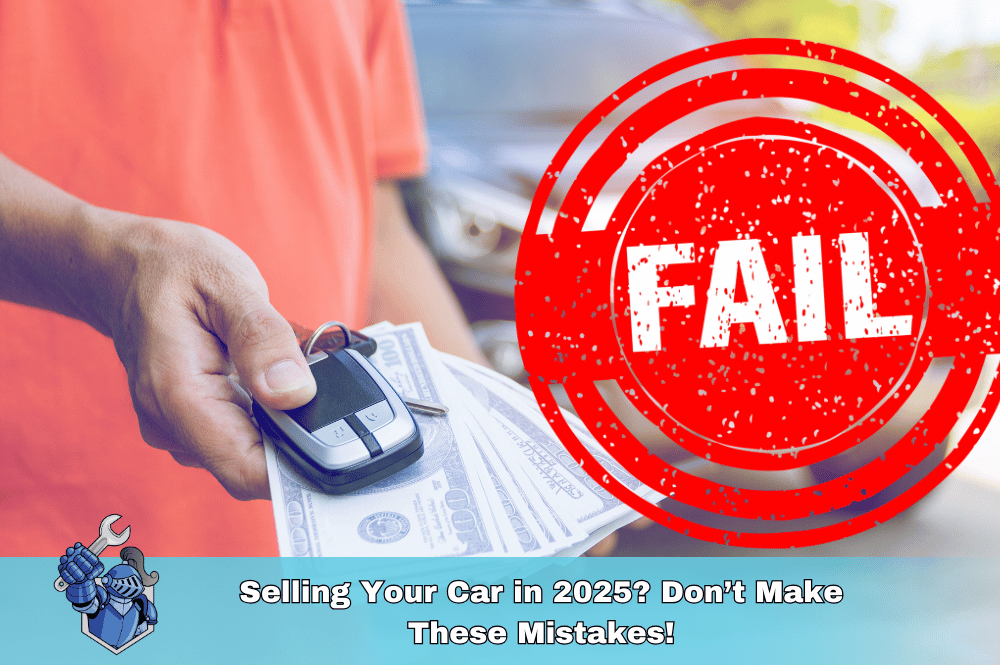 Selling Your Car in 2025? Don’t Make These Mistakes!
Selling Your Car in 2025? Don’t Make These Mistakes! Maximize Your Tesla Warranty: Smart Strategies for Extended Coverage
Maximize Your Tesla Warranty: Smart Strategies for Extended Coverage 2015 Ford Explorer: Avoid Costly Repairs with the Right Extended Warranty
2015 Ford Explorer: Avoid Costly Repairs with the Right Extended Warranty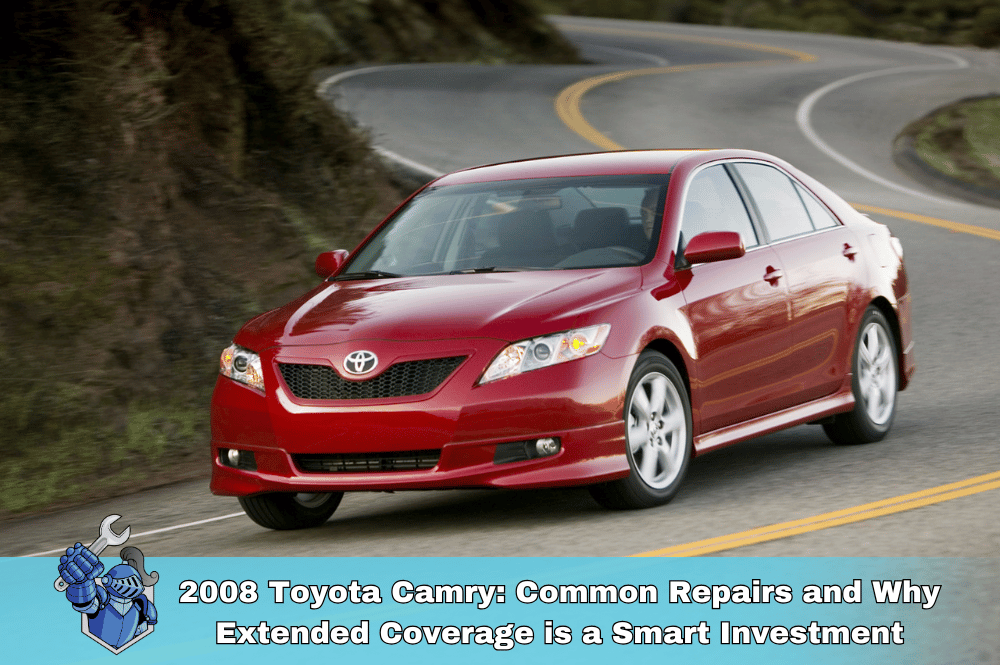 2008 Toyota Camry: Common Repairs and Why Extended Coverage is a Smart Investment
2008 Toyota Camry: Common Repairs and Why Extended Coverage is a Smart Investment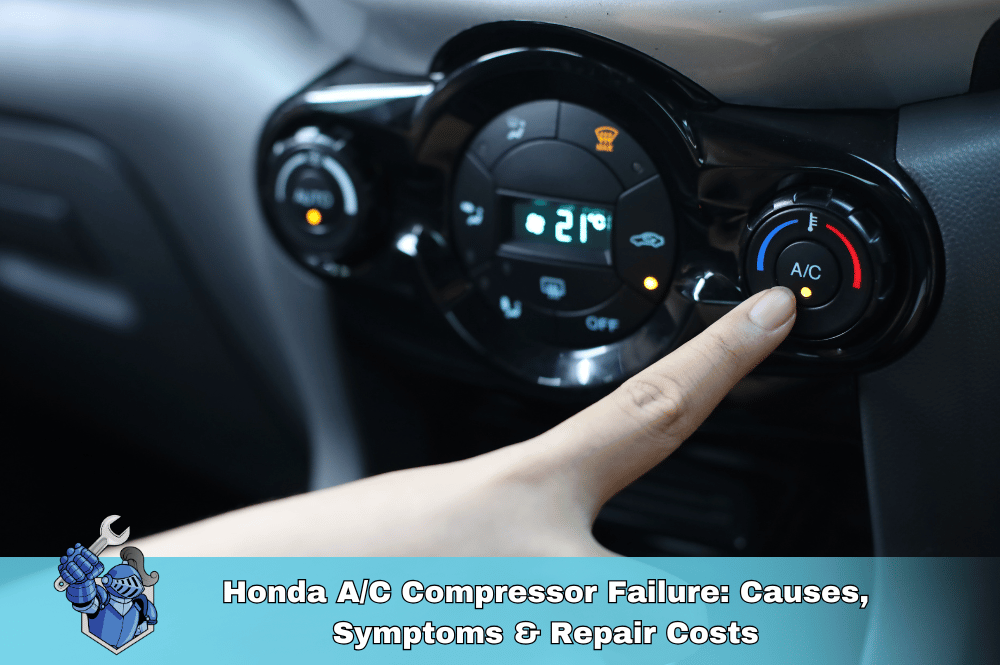 Honda A/C Compressor Failure: Causes, Symptoms & Repair Costs
Honda A/C Compressor Failure: Causes, Symptoms & Repair Costs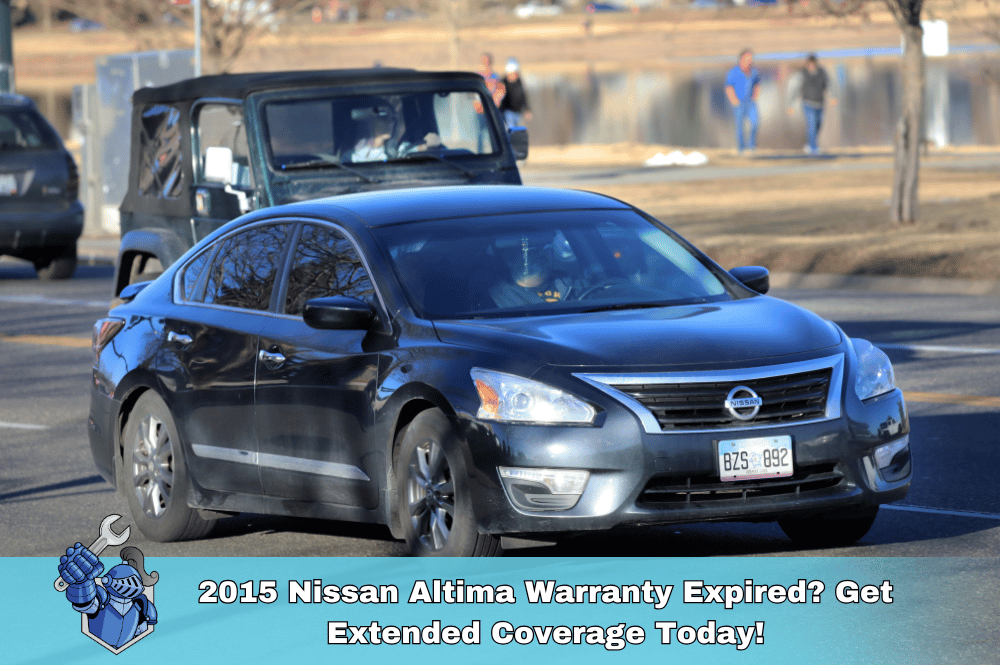 2015 Nissan Altima Warranty Expired? Get Extended Coverage Today!
2015 Nissan Altima Warranty Expired? Get Extended Coverage Today!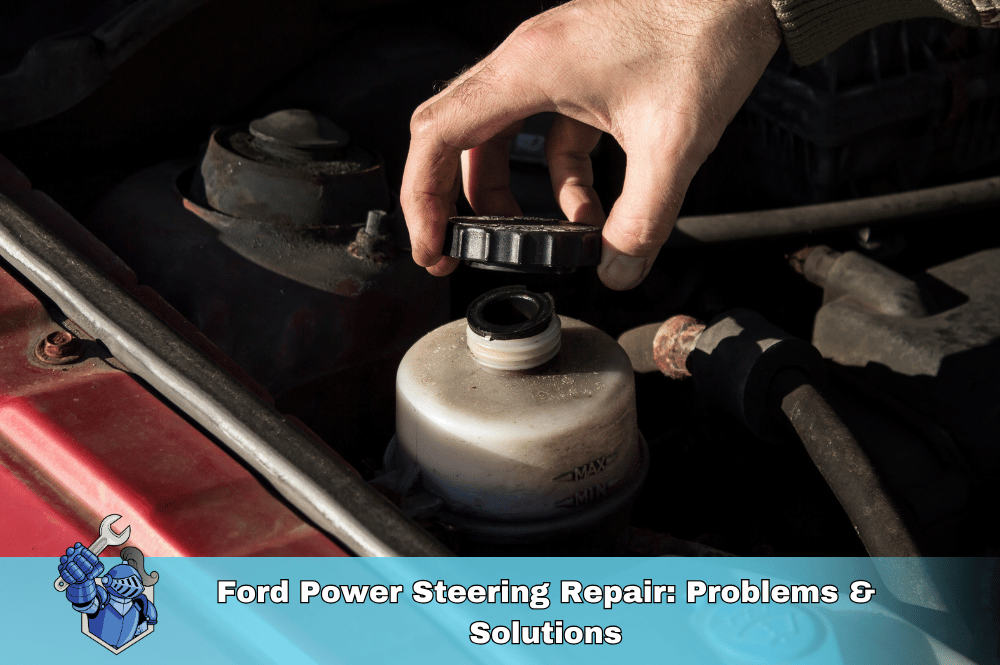 Ford Power Steering Repair: Problems & Solutions
Ford Power Steering Repair: Problems & Solutions Save on Car Repairs: NobleQuote vs. Toco Extended Warranty Review
Save on Car Repairs: NobleQuote vs. Toco Extended Warranty Review 2016 Jeep Wrangler Extended Warranty: Coverage & Options
2016 Jeep Wrangler Extended Warranty: Coverage & Options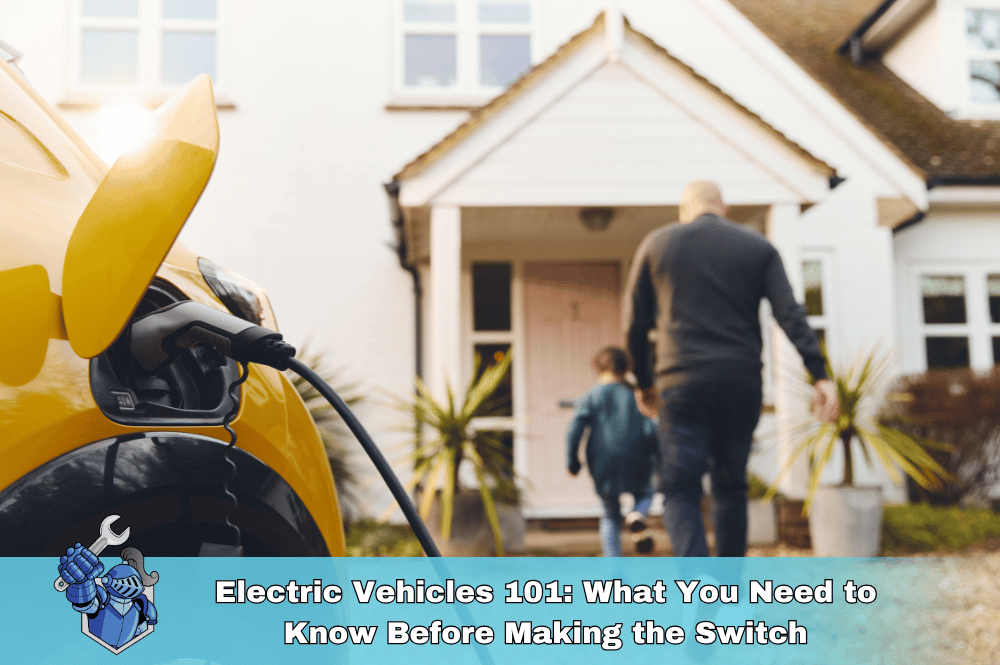 Electric Vehicles 101: What You Need to Know Before Making the Switch
Electric Vehicles 101: What You Need to Know Before Making the Switch Car Scratches Driving You Crazy? 10 Steps to Fix Them Yourself
Car Scratches Driving You Crazy? 10 Steps to Fix Them Yourself

